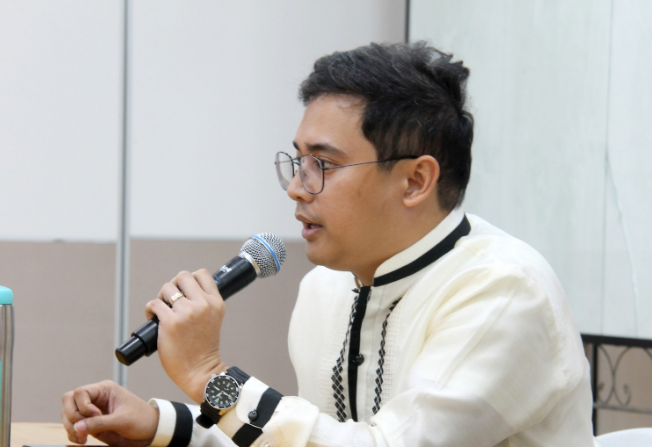THE CITY aims to order 150 high definition CCTVs equipped with AI facial recognition software to reinforce border control and crime prevention.
This, after the 21st City Council approved on Tuesday the AI-Powered Border and Public Safety Surveillance Ordinance of Davao City.
During the Pulong Pulong sa Dabawenyos, proponent Councilor Bonz Andre Militar said the measure will modernize border surveillance through the installation and integration of Artificial Intelligence (AI) facial recognition systems at strategic locations including seaports, airports, land terminals, shorelines, and other identified entry and exit points.
The AI surveillance system will have features such as automated flagging of matches against watchlists from law enforcement databases, real-time alerts transmitted to the PSSO to be integrated to the existing border control systems.
It will also have a secure storage and audit-tracking of all recognition logs and matches.
The AI facial recognition system is designed to interface with national law enforcement databases to detect and alert authorities about individuals flagged for arrest or surveillance which aids to crime prevention.
In terms of database, the City will enter into data-sharing agreements with the Davao City Police Office, National Intelligence Coordinating Agency, Task Force Davao, Civil Aviation Authority of the Philippines, National Bureau of Investigation Region XI, Bureau of Immigration Region XI, Philippine Coast Guard-Davao Station, Bureau of Customs Region XI, Philippine Ports Authority Region XI, Philippine Drug Enforcement Agency Region XI, and Criminal Investigation and Detection Group Region XI, and other concerned agencies for real-time access to updated watchlist and criminal databases.
Militar said the system proposed has a high accuracy level so that only those in the database are the ones to be detected.
“There will be a series of verification but we will make sure that the AI facial recognition is very accurate,” he said.
The ordinance will cover the government buildings such as the City Hall, Sangguniang Panlungsod and Hall of Justice.
It also includes parks such as People’s Park, Magsaysay Park, parks within coastal area; air transport terminals such as Davao International Airport; and Old Sasa Airport; water or port transport terminals such as Sasa Mini Pier (Km. 11); Davao Fishport Complex (Toril Fish Port); Sta. Ana Wharf; Philippine Ports Authority; DAVSAM Wharf; and MaeWess Wharf.
For land transport terminals, the Davao City Overland Transport Terminal (DCOTT); bus stops identified by the Davao Bus System and private van terminals.
Also, it includes existing control checkpoints in Lasang, Sirawan and Lacson and 5 sub border control points in Eden, Malagos; Dacudao; Bunawan; and Mahayag.
Other convergence areas such as public markets, night markets, and other public access points as may be identified by the Public Safety and Security Office are also covered.
PSSO will serve as the lead implementing agency and will oversee the enforcement and monitoring.
Militar said to protect data privacy, the biometric data and facial scans will only be retained for periods necessary for processing and investigation and will be securely deleted after.
The measure entails corresponding penalties to violation with a fine of up to P5,000 and/or imprisonment for a period not exceeding one year or both.
The prohibited acts include intentional obstruction, disabling, damaging, tampering with, or interfering with any AI facial recognition device, monitoring equipment, or data transmission system; unauthorized access or data breach; possession of any unauthorized, leaked, or misused, or illegally accessed surveillance data; unauthorized entry or exit such that any person evading or violating lawful security protocols at designated entry and exit points, including refusal to undergo scanning, use of falsified identities, or obstruction of inspection procedures.
Militar said several firms have expressed intent, including local suppliers and foreign providers but the city government will still undergo a public bidding process to select the supplier of the technology.
Photo courtesy of Konsehal Bonz Militar FB page



